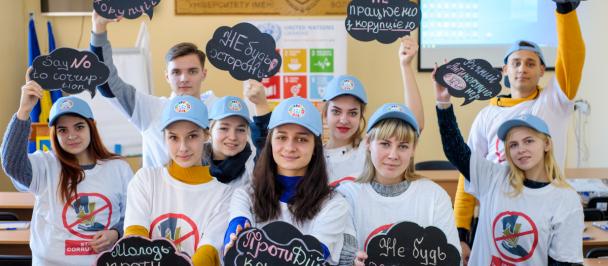Countries cannot ignore corruption during the COVID-19 response. Even in ordinary times, research has shown that corruption in the health sector causes losses of US$455 billion per year and, according to OECD estimates, up to US$2 trillion of procurement costs could be lost to corruption.
How do we consider this reality during a global pandemic, when there are increased opportunities for corruption to take place, while at the same time not compromising an effective public health response?
Experience has shown that applying a risk-based prioritization framework is a crucial first step. Tailored to each context, the framework should determine which governance, transparency and accountability mechanisms must be integrated into all COVID-19 public health response planning and design. This framework should prioritize deterring those forms of corruption that stand to most severely undermine both the quality and speed of the public health response. Indeed, there may be times when risks and mitigating measures identified during ordinary times are deprioritized during an emergency response.
The adoption of a multi-stakeholder and multi-sectoral oversight body, involving governments, civil society, academia, and anti-corruption, audit and oversight institutions, will help to raise awareness, and to bridge the health and anti-corruption communities, promoting dialogue and cooperation to mitigate corruption risks and make the most of available resources.
Community-led monitoring mechanisms which place greater reliance on bottom-up social accountability from the public itself are central to a robust response. Measures to increase transparency of data and decision making, as well as channels for citizens to safely report instances of potential corrupt acts are paramount. For example, use of digital technology to report falsified medical products, shortages in supplies, and other irregularities related to procurement or assets, should be encouraged.
Here are a few examples of smart anti-corruption practices that are being used by countries during the pandemic response.
In Ukraine, anti-corruption reforms oblige all emergency contracts to be published in full, shared as open data, including terms of payment and delivery, and value. Civil society has developed a business intelligence tool to monitor COVID-19 related medical procurement and emergency spending, and includes information such as the name of items, the price per item, terms, and supplier. Colombia uses an e-procurement platform which complies with the Open Contracting Data Standard, even as emergency procedures have been announced. Colombia’s National Health Institute discloses not only tender data and information but all the technical comments received from potential suppliers.
The COVID-19 response also reminds us that effective institutions are an essential part of pandemic preparedness. Building institutional capacity and ensuring measures and systems are in place to prevent corruption and institutionalize transparency and accountability will help to deliver better health outcomes that would benefit the whole of society post the pandemic.
Given the enormous burden expected on countries to plan, respond and recover from the current pandemic, corruption must be considered as a significant barrier to a successful response. It is vital to focus on addressing those corruption risks which may most seriously harm the COVID-19 response both in the short-term crisis response and in recovery phase.
What are your experiences using ACTA measures during COVID-19? We would welcome your ideas and experiences, keeping in mind the questions below. Please email acta@who.int to share.
In what circumstances can fraud and corruption undermine the pandemic response? What measures do you think may be best suited to mitigate fraud and corruption risk in the context of pandemics?
What criteria would you suggest health and anti-corruption professionals use to determine when to insist on anti-corruption measures, or to lighten them in the context of a pandemic? Are there alternative mechanisms that can be leveraged to mitigate fraud and corruption risk while permitting efficient and effective delivery of the health response?

 Locations
Locations
